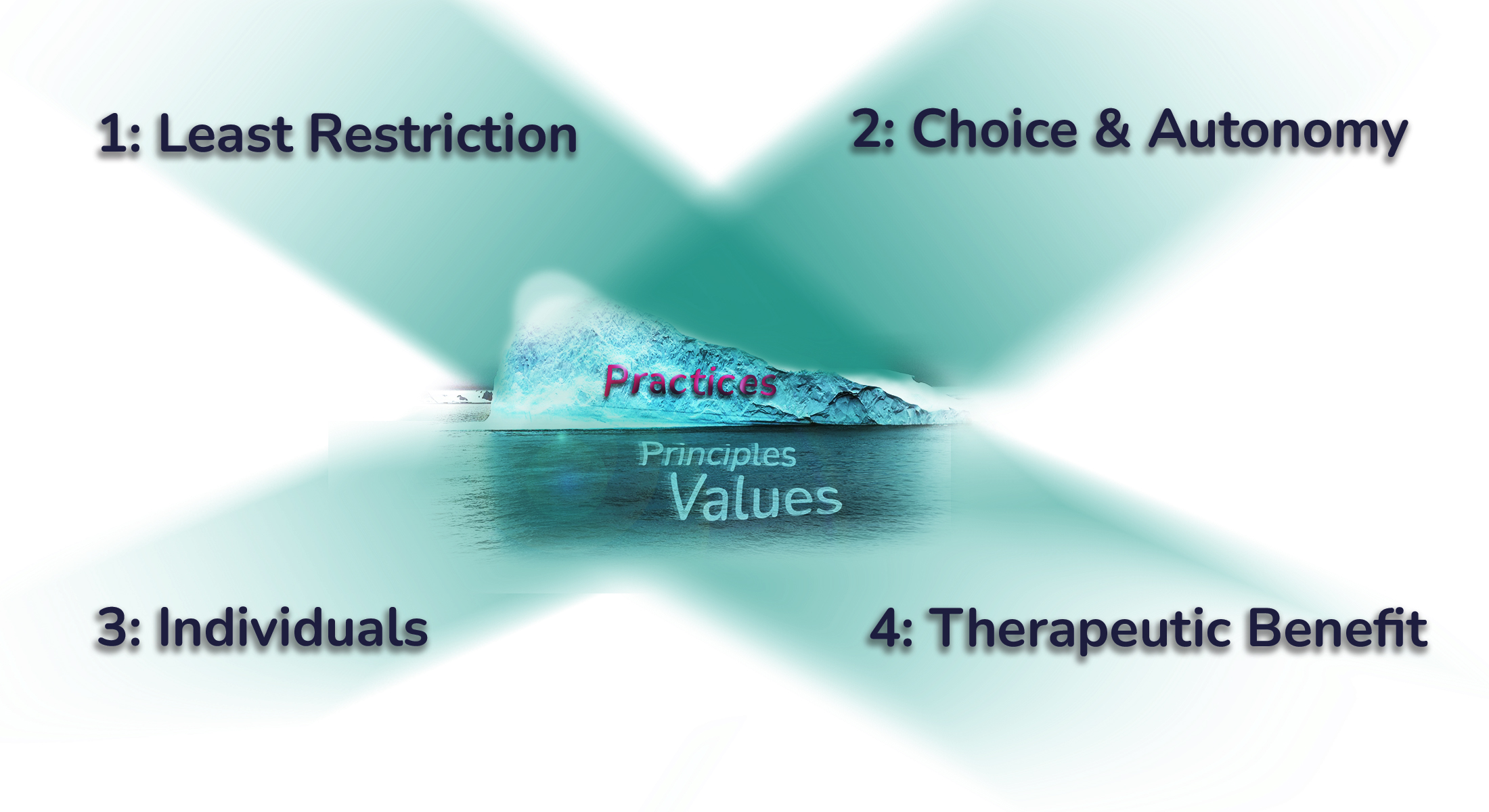INTRODUCTION
Welcome to this educational video resource, which explores the benefits Advance Choice Documents has for people who use mental health services. Please note that the term patient, service user and people who use mental health services are references used in this production and there are differences in preferences in the use of the expressions.
This learning resource has been co-produced with the SLaM Recovery College and has been funded by Health Education England.
In developing the product, we sought the views of people who use services, carers, clinicians and other professionals. We thank those who have given their time to support the project.
THE MENTAL HEALTH ACT REFORM STORY IN BRIEF
The Mental Health Act was reviewed in 2017-2018 and concerns were raised that:
- There were too many out of area placements
- There was an increased use of the MHA
- There was a massive over representation of people from the Black and Minority Ethnic population
154 recommendations were made with four new guiding principles:
- Choice and autonomy
- Least restriction
- Treating the person as an individual
- Therapeutic benefit
As of May 2023, it is unclear which recommendations will become law. However, South London and Maudsley NHS Foundation Trust began development of Advance Choice Documents. Patient involvement and choice is core to our trust strategy ‘Aiming High: Changing Lives’. Production of this programme is to inform clinicians, people who use services, carers, advocates and other stakeholders about good practice to support Advance Choice Document development.
THE FOUR PRINCIPLES OF THE REFORMED ACT

1: Least restriction – ensuring the Act is used in the least restrictive way
2: Choice and Autonomy – respecting users view and choices
3: Therapeutic Benefit - user should be supported to enable discharge
4: Individuals – regarding and treating service users as individuals
WHY DID SLAM CHOOSE THIS TOPIC?
SLaM chose this topic because:
- It was highly likely to be accepted as a reform which would benefit people that use our services and given greater requirements on patient involvement.
- It gives more choice and autonomy for people.
- We wanted to make a product that would be informative and useful for people who use mental health services, for carers, clinicians and other professionals who provide support to people.
- The use of ACDs may assist in keeping people well and reducing readmission rates.
WHAT AN ACD IS & WHAT IT IS NOT
An Advance Choice Document allows a person who uses mental health services to have a say in how they are treated so that professionals and others can be aware of their wishes, desires and preferences. They are not living wills and also they are not advance directives to refuse treatment.
ACDs should be developed with clinical teams and others who provide services:
- They must be offered pro-actively
- ACDs can reduce detention by 25%
- ACDs maintain therapeutic relationship, employment, housing and relationships with family
- They are cost effective and cheaper than use of the Mental Health Act
They are useful for all people, but they will be a legal requirement for people who have been detained in the past, and those who may be detained in the future under the Mental Health Act.
PROJECT APPROACH
The project took a broader approach than solely focussing on ACDs for detained people. The programme goes wider than the ACDs in the MHA Bill, as it includes guidance on good practice for all people who use mental health services, when developing their care plans and crisis plans. It includes guidance for good practice and support in crisis planning
All people who use services have a right to be offered good support and to be involved in decisions about their care, and the modules give guidance for people in the general adult population, with specialist modules for CAMHS, learning disabilities and autism. It includes guidance on how Independent Mental Health Advocates and Chaplains can support people on their journey through care and with developing their advance choices

